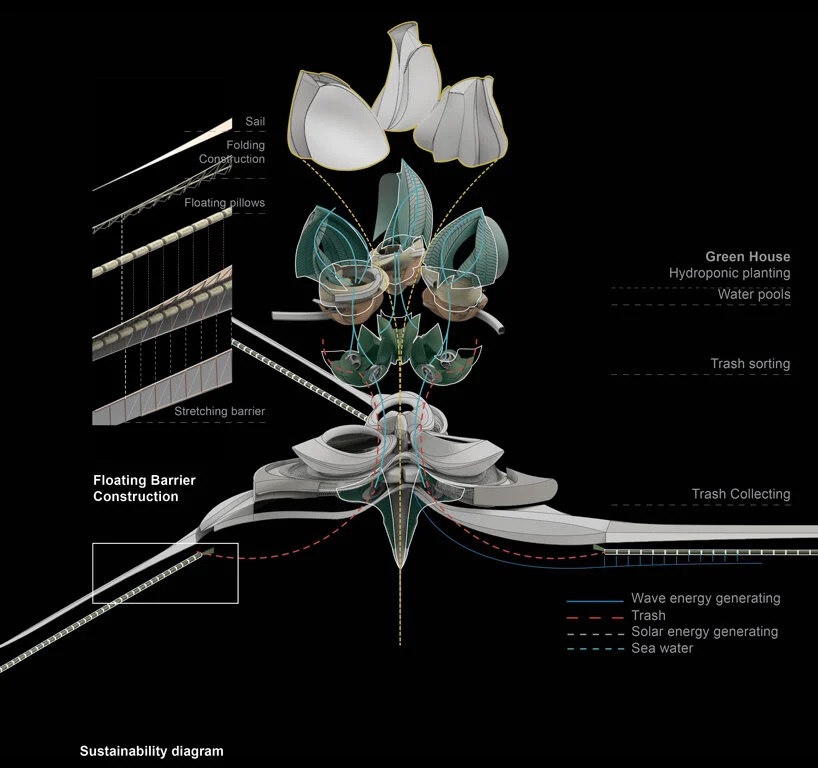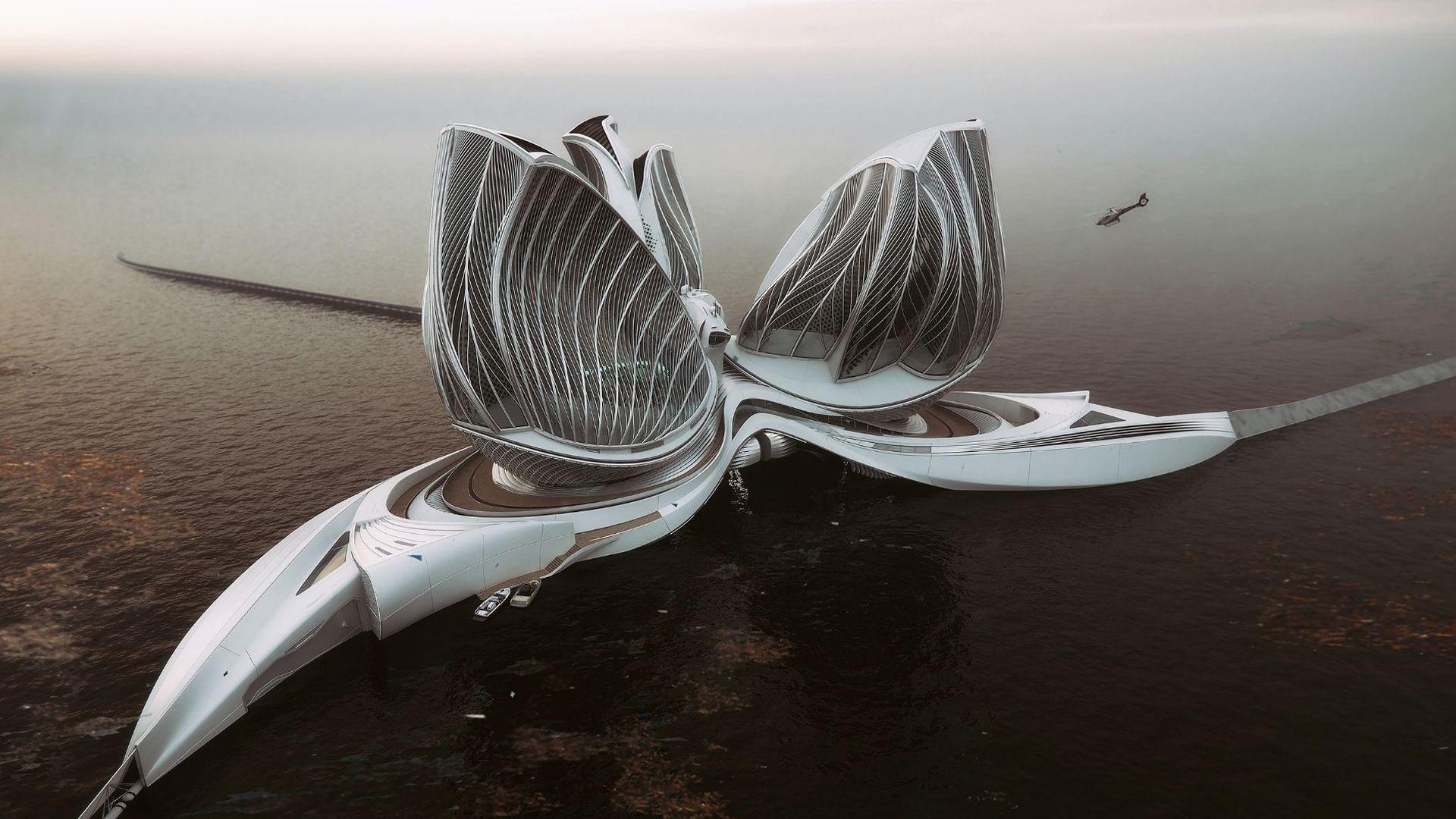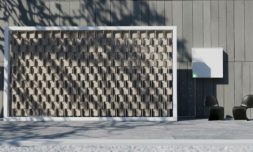Forget a trip to Australia, the only exotic continent you’ll need to visit in 2050 is this man-made recycling structure that collects ocean debris. No word on whether you’ll be able to get a tan yet, mind.
If you’ve been checking in on Thred over the past few months – particularly during our COP26 coverage – then you’ll know all about ocean pollution.
With plastic still being dumped into our seas at unprecedented rates, our marine life and ocean habitats are under threat. Since the beginning of the pandemic, it’s estimated that 8.4 tonnes of plastic has been created from 193 countries, according to a new report in the online journal PNAS.
Such a huge climate problem poses a daunting task for sustainability designers and innovators. How can we clean our oceans and sort out the plastic problem without causing further pollution and carbon emissions?
One answer is a floating recycling centre called the ‘Eighth Continent’, which would be able to travel across the sea independently and collect rogue plastic.

The concept design includes living quarters and a Research and Education Centre, as well as greenhouses that store and grow plants.
Water can also be desalinated on board and the ‘continent’ would be able to collect and store tidal energy. Plastics that have been picked up can be turned into recycled material.
All sounds rather dandy, doesn’t it?
Created by Lenka Petrakova, the ‘Eight Continent’ won the Jacques Rougerie Foundation’s 2020 Grand Prix Award for Architecture and Innovation. Petrakova currently works in London at Zaha Hadid Architects, and developed the idea in Austria several years ago during her academic studies.





















